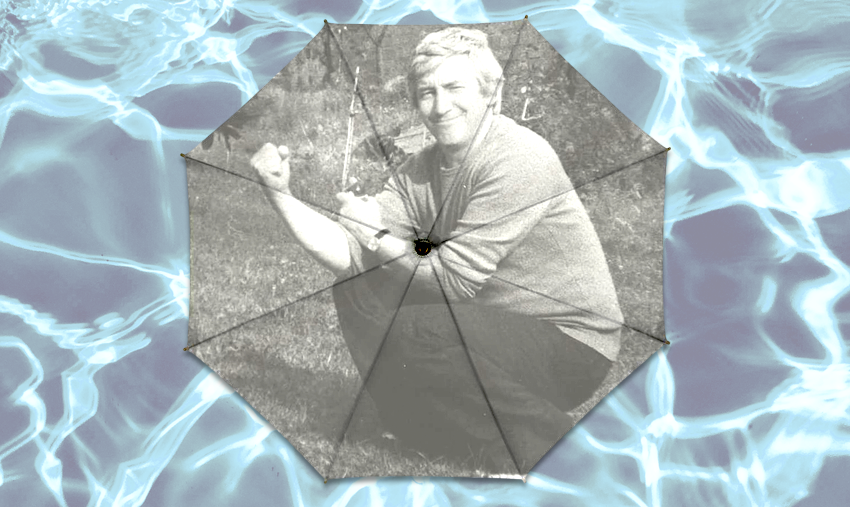‘The writer was so brave’
(Sorry, this post is mostly about the poison-dart umbrella)

On September 7, 1978, Bulgarian emigré and journalist Georgi Markov was waiting for a bus near London’s Waterloo Bridge when he felt a sharp pain in his leg. Arriving at the BBC World Services office a few minutes later, he told a colleague that a man with a strong foreign accent said “I am sorry,” before jabbing him in the thigh with the tip of his umbrella. The man then disappeared into the crowd.
Markov’s coworker looked at his leg and, other than a small red mark, it seemed…well, not terribly serious. But Markov started to feel weak and feverish, and was unable to broadcast his show that night. The next day, he was admitted into St. James’ Hospital, and at 10:50 a.m. on September 11 — less than three days after he fell ill — Georgi Markov died. He was 49 years old.
Authorities initially originally shrugged off the story about the stranger with the umbrella. But then a postmortem exam revealed a tiny metal pellet embedded in his leg — one identical to the metal pellet that was removed from another Bulgarian exile-turned-journalist earlier that month. Soon Scotland Yard discovered that it contained ricin, an incredibly potent toxin (and Breaking Bad plot point). By September 30, Markov’s strange, sudden death had been hurriedly recategorized as a murder investigation.
A successful playwright, novelist, and broadcaster in Bulgaria, Markov had achieved both fame and privilege through his friendship with former Communist dictator, Todor Zhivkov. He moved to London in 1970, started working for Radio Free Europe and launched his own Sunday night program, “In Absentia,” along with other work with British and German public media. Much of this work centered on sarcastic criticism of the Soviet-backed regime, and started to annoy — and then anger — the wrong people in Bulgaria.
Markov was aware that his broadcasts could put him in danger and had become “a little bit paranoid,” according to other Bulgarian journalists. “Sometimes he would go to visit friends and he would refuse to touch the food, things like that,” Dimiter Kenarov told Australia’s ABC News.
He was right to be paranoid, though: the umbrella stabbing was actually the third known attempt on his life that year. In the spring, an unknown assailant put “a toxin” in his drink at a Munich dinner party. Later that summer, someone else tried to kill him while he was vacationing in Italy.
Despite its high-profile nature, Scotland Yard failed to close the case of the one that finally worked (they say it’s still an open investigation).
Documents taken from the Bulgarian KGB-like secret service suggested to one journalist that the culprit was Francesco Gullino, an Italian-born Dane who had been in London at the time of Markov’s assassination (although he was supposedly in the city to “sell art.”) He had been identified by both the Danish secret service and Scotland Yard in 1993, but was released due to a lack of evidence. In 2013, Gullino admitted to one intrepid reporter that he had worked for the secret service, but denied killing Markov. “I have got nothing to do with this story,” he maintained. (Gullino died in 2021.)
At the time of his death, Markov was writing a political satire about a chimpanzee who became Britain’s Prime Minister. “I wish, that, when people talk about [Markov’s death] in the west, they wouldn’t say ‘Oh the guy, that got stuck by an umbrella’, they’d say ‘oh the great writer,’” Markov’s widow said in 2013. “The writer was so brave, that he risked his life to tell the truth, this would be fantastic.”
